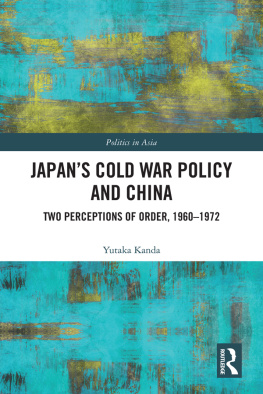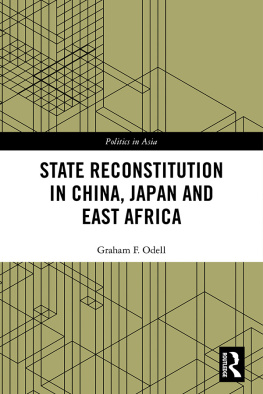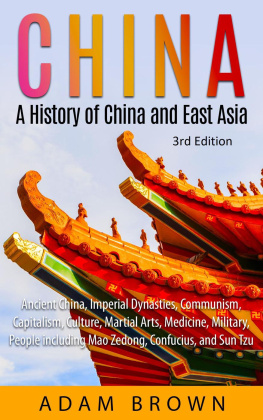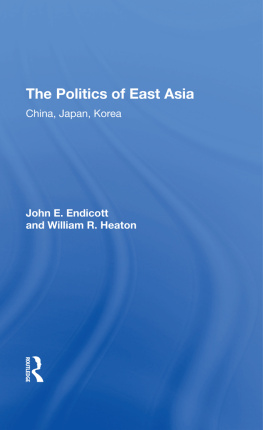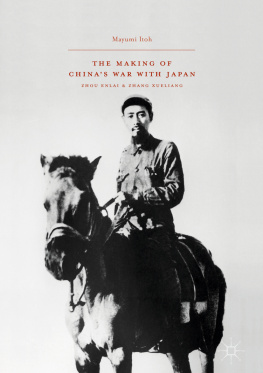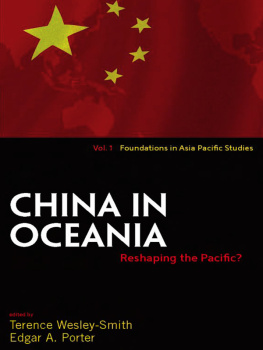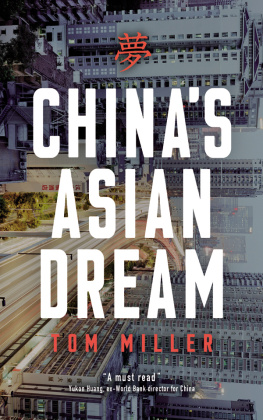
World War Two Legacies in East Asia
How to remember World War Two in East Asia is a huge source of friction between China and Japan, causing major diplomatic and political difficulties right up to the present. As this book shows, however, there is also disagreement within these countries as to how to remember the war, which in the case of China began immediately after the war and lasted with varying degrees of intensity. Based on extensive original research, the book explores how Chinas remembrance of the war has evolved over time. It not only explores the roles played by the national as well as local state actors in the formation of the Chinese war memory, but also pays attention to individual Chinese people. It considers particular aspects of commemoration in China, explores the corresponding situation in Japan and discusses the continuing impact on the relationship between the two countries.
Chan Yang is a Lecturer in the Institute for International Studies at Wuhan University, China.
Routledge Studies in the Modern History of Asia
For a full list of available titles please visit: https://www.routledge.com/Routledge-Studies-in-the-Modern-History-of-Asia/book-series/MODHISTASIA
119. Britains Imperial Retreat from China, 19001931
Phoebe Chow
120. Constitution Making in Asia
Decolonisation and State-Building in the Aftermath of the British Empire
H. Kumarasingham
121. Neutrality in Southeast Asia
Concepts and Contexts
Nicholas Tarling
122. Britains Retreat from Empire in East Asia, 19051980
Edited by Antony Best
123. The Dismantling of Japans Empire in East Asia
Deimperialization, Postwar Legitimation and Imperial Afterlife
Edited by Barak Kushner and Sherzod Muminov
124. Public Health and the Modernization of China, 19102015
Liping Bu
125. The Economy of Colonial Malaya
Administrators versus Capitalists
Sivachandralingam Sundara Raja
126. Secularism, Decolonisation, and the Cold War in South and Southeast Asia
Clemens Six
127. Chinese Middlemen in Hong Kongs Colonial Economy, 18301890
Kaori Abe
128. World War Two Legacies in East Asia
China Remembers the War
Chan Yang
First published 2018
by Routledge
2 Park Square, Milton Park, Abingdon, Oxon OX14 4RN
and by Routledge
711 Third Avenue, New York, NY 10017
Routledge is an imprint of the Taylor & Francis Group, an informa business
2018 Chan Yang
The right of Chan Yang to be identified as author of this work has been asserted by her in accordance with sections 77 and 78 of the Copyright, Designs and Patents Act 1988.
All rights reserved. No part of this book may be reprinted or reproduced or utilised in any form or by any electronic, mechanical, or other means, now known or hereafter invented, including photocopying and recording, or in any information storage or retrieval system, without permission in writing from the publishers.
Trademark notice: Product or corporate names may be trademarks or registered trademarks, and are used only for identification and explanation without intent to infringe.
British Library Cataloguing in Publication Data
A catalogue record for this book is available from the British Library
Library of Congress Cataloging in Publication Data
A catalog record for this book has been requested
ISBN: 978-1-138-30370-6 (hbk)
ISBN: 978-1-315-14249-4 (ebk)
Chinese and Japanese words, including names of places and people, have been romanised using the Hanyu Pinyin system and Hepburn system in most cases. However, other transliterations will be used when a word in Pinyin is unfamiliar in English: for example, Chiang Kai-Shek (Jiang Jieshi). Except in the case of Pinyin and Romaji, Chinese and Japanese scripts and English translations will be given when necessary. Following the conventions in the two countries, Chinese and Japanese names will be given with the family name first, followed by the given name.
Different names have been given to the military conflict that was fought between China and Japan in the 1930s and 1940s, which merged into the greater conflict of World War Two after the Battle of Pearl Harbor in 1941. Different periods in time are also referred to. The most internationally recognised name is the Second SinoJapanese War (19371945). In China, people normally refer to this as the War of Resistance against Japan or Anti-Japanese War (Kang Ri zhanzheng, , 19371945), or the Fourteen-Year War (Shisinian zhanzheng, , 19311945). In Japan, several names are given to the conflict, like the Great East Asia War (Daitoua sensou , 19411945), the Fifteen-Year War (Juugonen sensou, , 19311945) and the Pacific War (Taiheiyou sensou, , 19411945). This book prefers to call this conflict the Fifteen-Year War. However, at times different names will be used in this book, according to the context.
Almost seventy years have passed since the end of the Second World War. However, unlike in Europe, no consensus has been reached as to how to remember the war between East Asian countries, and even within each East Asian country consensus is hard to reach. What is more, the remembrance of the war is often a source of diplomatic controversy in East Asia, especially between Japan and China. Exploring how the Fifteen-Year War (the military conflict between Japan and China from 1931 to 1945 the main conflict in the Second World War in the East Asian theatre) has been remembered in mainland China and Japan is an essential step towards understanding the origin of the currently explosive SinoJapanese history problem. There is an extensive literature on the evolution of remembrance of the Fifteen-Year War in post-war Japan, but there is just a sprinkling of literature on the Chinese side.
Thanks to several recently published books, such as Rana Mitters Chinas War with Japan, 19371945: The Struggle for Survival, readers outside China and Japan have gradually come to know the Fifteen-Year War from the Chinese perspective, which has previously been overlooked. However, despite its importance, there is no effective discussion about how Chinese people have remembered that war. A domestic tradition of discussing the evolving history of remembrance of the war is lacking in mainland China. Discussion of the topic is dominated by a few scholars from outside of China, who are mainly interested in SinoJapanese relations and individual war-related controversies.
Most of this research on the Chinese side argues that before the 1982 Textbook Incident' there had been a benevolent amnesia with respect to the Fifteen-Year War, and the current problematic remembrance of the Fifteen-Year War in China can be attributed to the patriotic campaigns sponsored by the Chinese Communist Party (CCP) regime since around 1982.1 Nevertheless, there are two major shortcomings in the research examining the pre-1982 period: a lack of thorough first-hand research, and a strong government-centric view, which renders these studies overly simplistic and partial.


